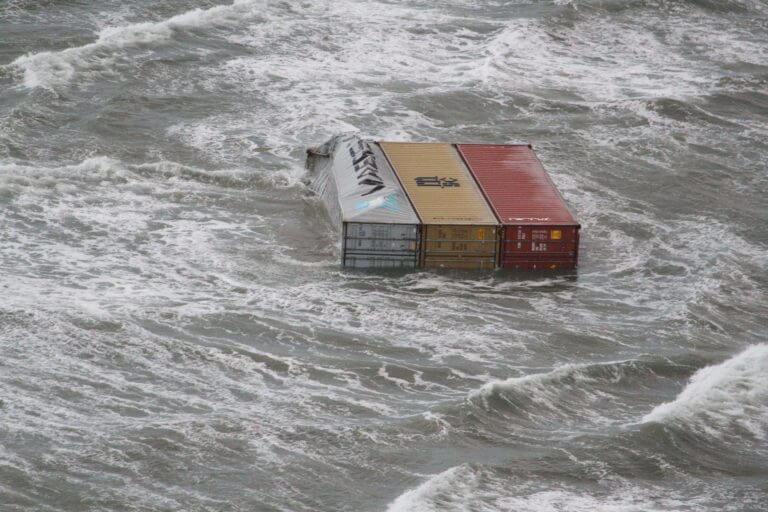During the last two years, the container losses have significantly increased with the average losses for the two year period 2020-2021 reaching 3,113 compared to 779 in the previous period.
One of the most important reasons for this worrying spike is the unusually high number of weather-related incidents, according to the World Shipping Council (WSC), which has published a report showing that although the containers lost overboard represent less than 0.001% of the global container fleet, the past two years have seen a worrying break in the downward trend for losses, with the average number of containers lost at sea per year since the start of the survey increasing by 18% to 1,629.
“Even with proper packing of the cargo into the container, correct container weight, and proper stowage and securing aboard ship, several factors ranging from severe weather and rough seas to more catastrophic and rare events like ship groundings, structural failures, and collisions can result in containers being lost at sea,” said WSC.
In view of the container losses increase, WSC and member lines have initiated the MARIN Top Tier project, which will run over three years and will use scientific analyses, studies, and desktop as well as real-life measurements and data collection to develop and publish specific, actionable recommendations to reduce the risk of containers lost overboard.
“Container vessels are designed to transport containers safely and carriers operate with tight safety procedures, but when we see numbers going the wrong way, we need to make every effort to find out why and further increase safety,” commented John Butler, president and CEO of WSC.
Initial results from the study show that parametric rolling in following seas is especially hazardous for container vessels, a phenomenon that is not well known and can develop unexpectedly with severe consequences. Parametric rolling is a term used to describe the phenomenon of when a vessel experiences a large unstable rolling motion from side to side in head or stern seas.
WSC noted that a Notice to Mariners has been developed, describing how container vessel crew and operational staff can plan, recognize and act to prevent parametric rolling in following seas.
“The liner shipping industry’s goal remains to keep the loss of containers as close to zero as possible. We will continue to explore and implement measures to make that happen and welcome continued cooperation from governments and other stakeholders to accomplish this goal,” added Butler.
In addition to the MARIN TopTier project, WSC and member companies have contributed to and supported the revision of the IMO’s guidelines for the inspection programmes for cargo transport units. WSC also supports the creation of a mandatory reporting framework for all containers lost at sea – an issue that will be on IMO’s agenda in September (CCC 8).
The high number of incidents has led WSC to the decision to increase the frequency of its Containers Lost at Sea report. The council announced that, effective from the next year, the report will be updated each year, instead of every three years.





